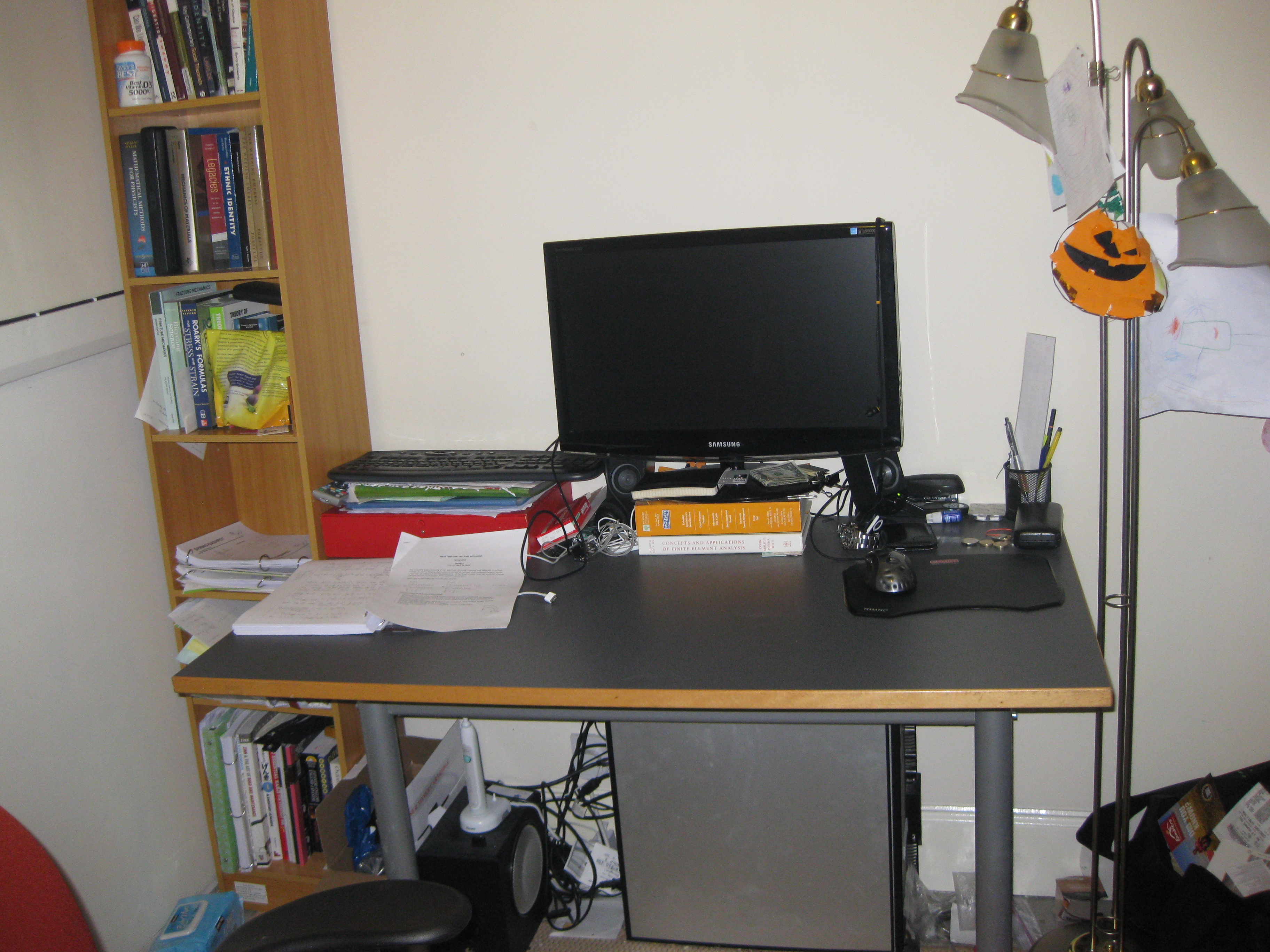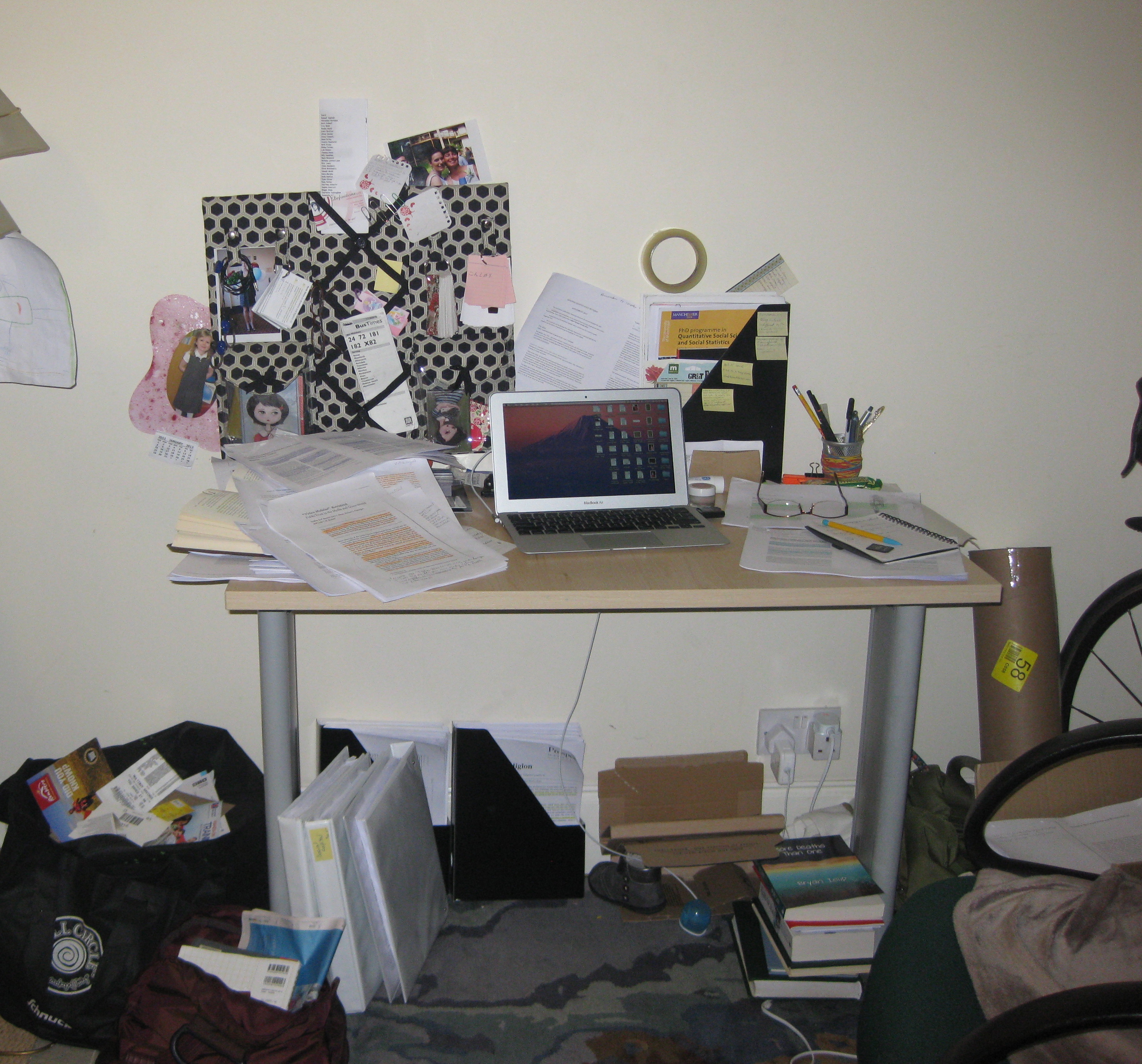Earlier today I was on Goodreads.com (wasting precious time that I should have spent on research) and someone posted this link. It is a collage of 12 bedrooms belonging to famous writers. Most of them are painfully lavish, reminding me how little I have actually earned with my own writing. This one apparently belonged to Victor Hugo (one of my favourites, but really, red?).

Some were surprisingly simple. Can you imagine William Faulkner sleeping here (below)? Stark hardly begins to describe it. There isn’t even a lampshade on that bare bulb.

What was notable about this variety of literary, decorative and slumbering styles was that almost all of them included a writing desk. This sparked a comical exchange in which we all discussed our bedrooms/writing spaces. I won’t rehash the conversation for you, but I do recommend checking the website out.
The conversation did cause me to pause and look around however. It made me laugh. How do you work? Are you the type that keeps things neat and tidy, with everything within ordered reach, or are you the type that has to let the paperwork flow in a natural manner in order to let your creativity free? I never gave me style much thought…until now.
Both my husband and I are in the last few months of masters degrees. He is down to less than a month and I am down to just under 4. Lately, we spend most of our time together sitting silently at our desks hacking anxiously away at the keyboards. He produces amazingly complex graphics demonstrating the flux and stain of engineering principles I can’t begin to understand, and I string word after word after word together in what I hope is a sonorous manner. Our projects couldn’t be farther apart, and neither could our methods.
It is small and cluttered. I surround myself with notes and reminders. They are stuck to the wall, my binders, the back of the computer, everywhere. It is like a den. I am physically immersed in the information I am trying to assimilate. If ever I stop and clear my desk it is a sign of EXTREME stress, and should be taken as a very bad sign, possible even a sign to run for your life.
This, however, is my husband’s desk:

It’s a bit bigger, but I’m not bitter or anything. What I wish to point out is how neat and tidy it is. I couldn’t work in that space. Nothing would speak to me. No note would remind me where to reference de Vreese’s reconsideration of the Spiral of Cynicism or when my quants project is due or on what page Fukuyama discusses Zaibatsu. That desk gives me no information.
He, however, occasionally looks over at me in my mountain of material with a look of cold derision. I know what he’s thinking. He wonders how I can find anything or concentrate with so much distraction around me. He wonders why I have to scribble so many notes. He wants to tell me to clean it, but knows better.
We each have a method. It works for us in ways it probably wouldn’t work for anyone else. It is ours and ours alone, and I became aware of it today. It made me laugh through my stress. It enabled me to make one more cup of tea and get back to work. Today I appreciate our differences for what they are, amazing and necessary.
